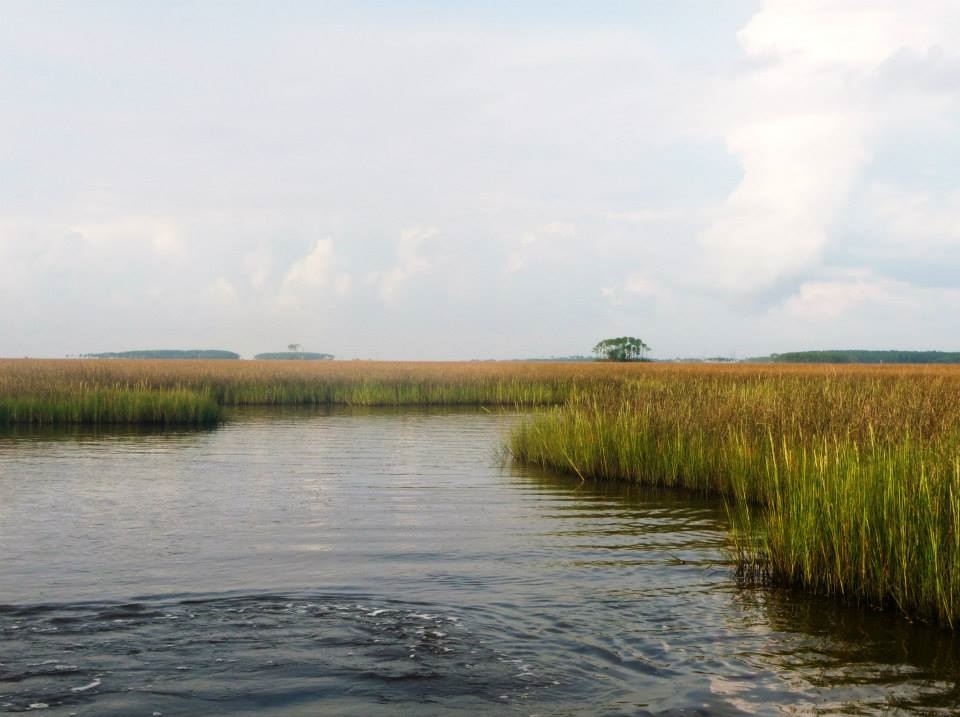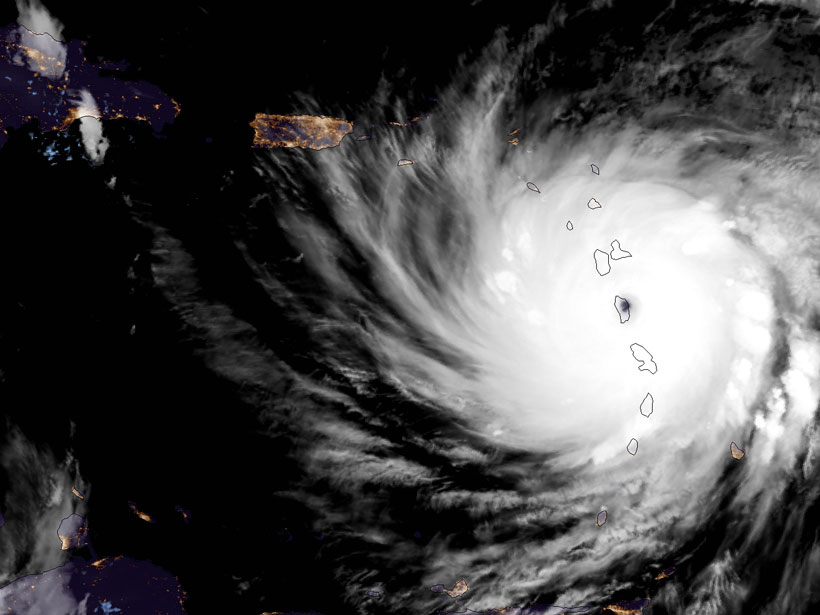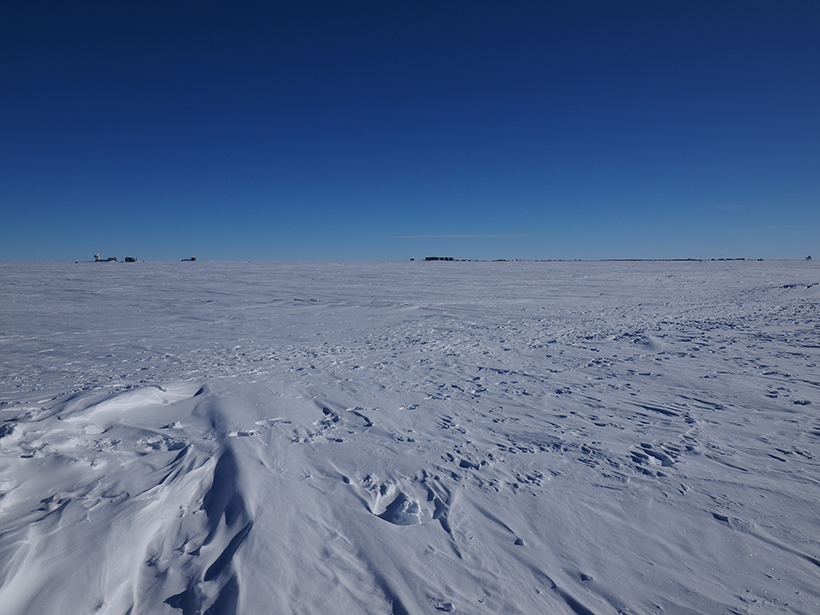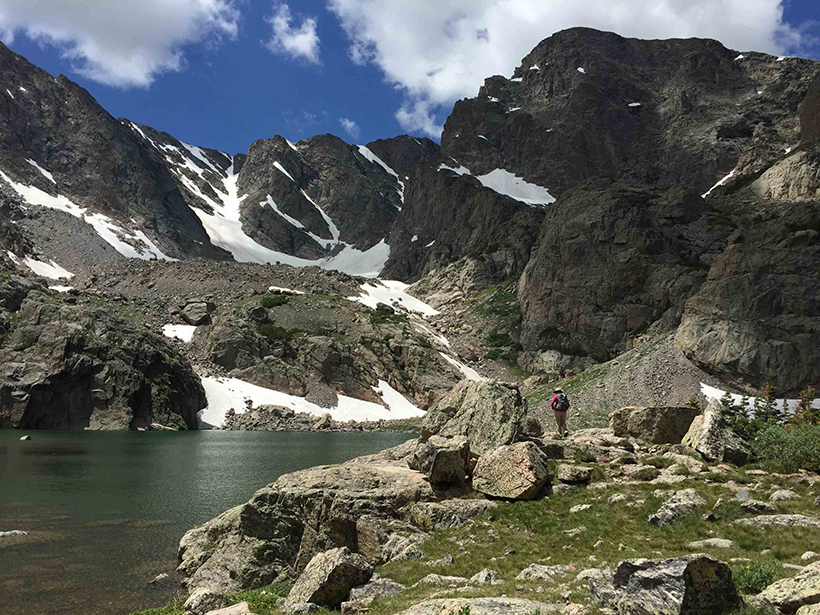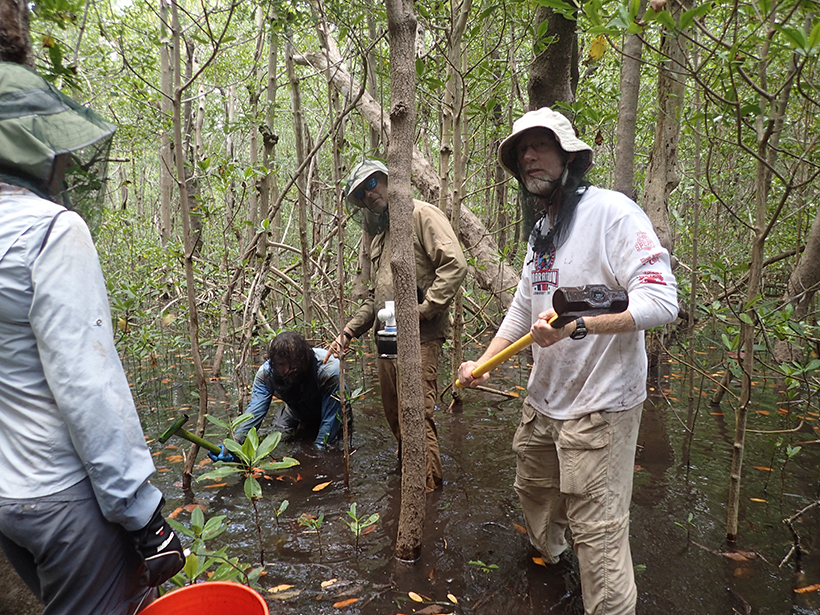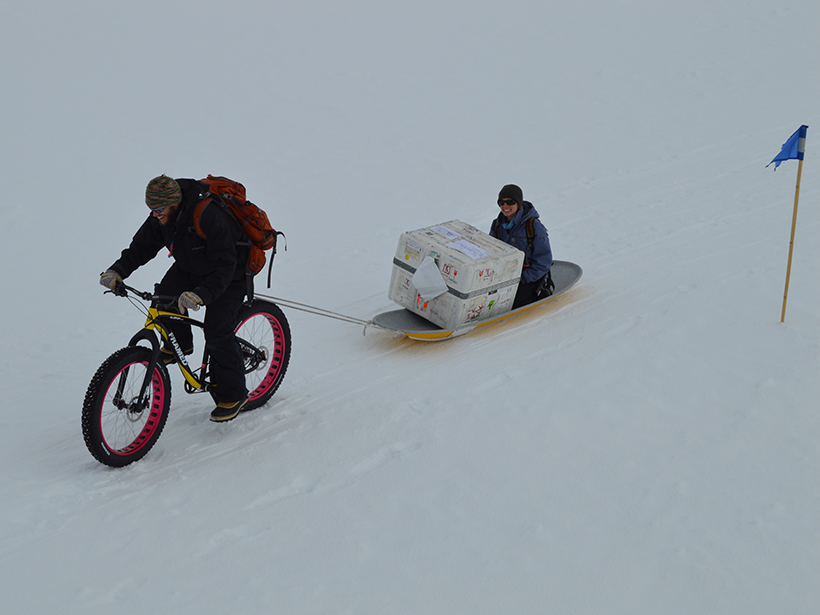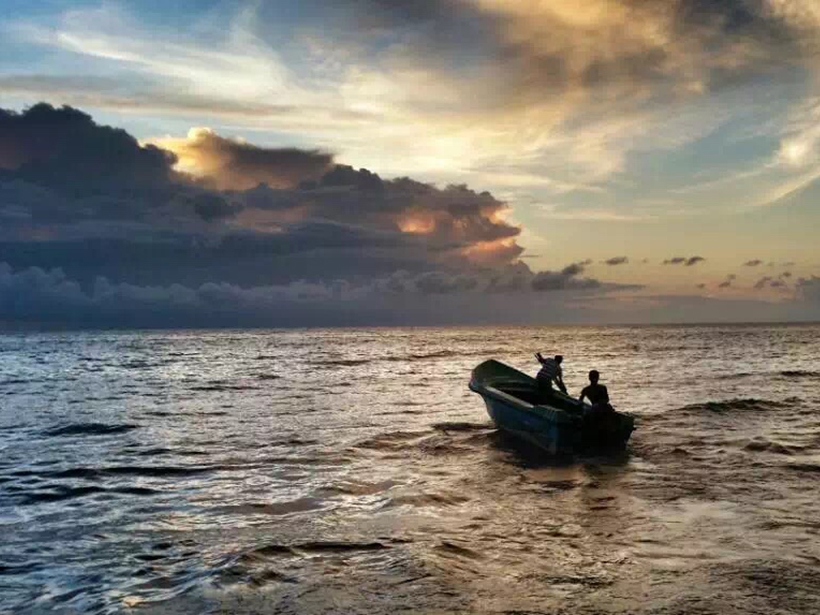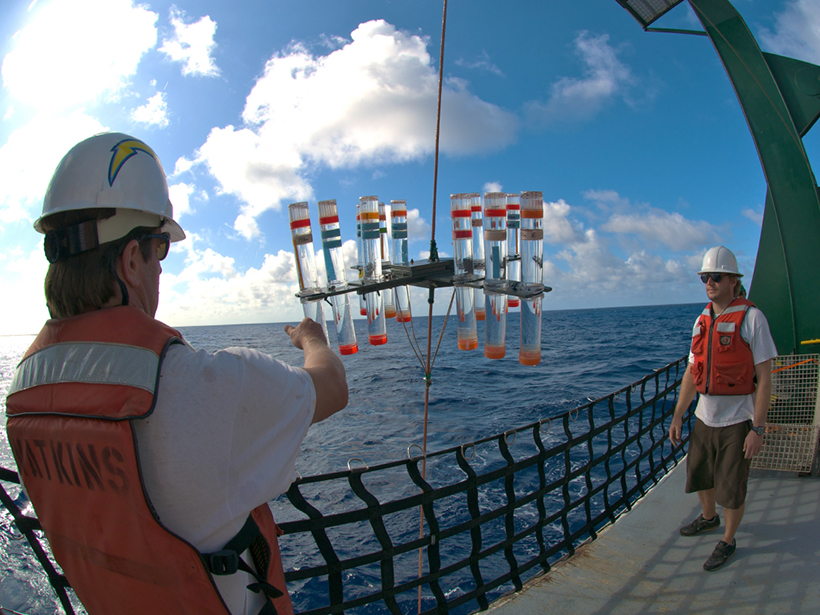A field study in the Swiss Alps showed considerable spatial and temporal variability in forest air and surface temperatures, with implications for snowmelt models.
Climate Change
When Less Is More: Opening the Door to Simpler Climate Models
Earth system models are resource intensive and complex. To cut through this complexity, the Community Earth System Model project will now be embracing a hierarchy of simpler climate models.
Water World: Sea Level Rise, Coastal Floods, and Storm Surges
A special issue of Earth’s Future examines the impacts of sea level rise on coastal areas and showcases a paradigm shift in the modeling of these dynamic systems.
Unprecedented Hurricane Season Sees Widespread Damage
This hurricane season has broken multiple records already.
Stable Isotopes in Paleoclimate Reanalysis
Second Annual Workshop of the Last Millennium Reanalysis Project; Friday Harbor, Washington, 25–26 October 2016
Understanding Mountain Lakes in a Changing World
Mountain Lakes and Global Change Workshop; Fort Collins, Colorado, 6–8 March 2017
Turning up the Heat on Organic Matter to Track Carbon
Inaugural Workshop on Thermal Analysis of Natural Organic Matter; Woods Hole, Massachusetts, 15–16 September 2016
Envisioning and Sustaining Science at Summit Station, Greenland
Summit Station Science Summit; Arlington, Virginia, 28–29 March 2017
Taking the Pulse of the Planet
How fast is Earth warming? Ocean heat content and sea level rise measurements may provide a more reliable answer than atmospheric measurements.
Monitoring Ocean Change in the 21st Century
Time series data sets, which contain measurements repeated over a span of decades, yield important insights into our oceans’ vital signs.



